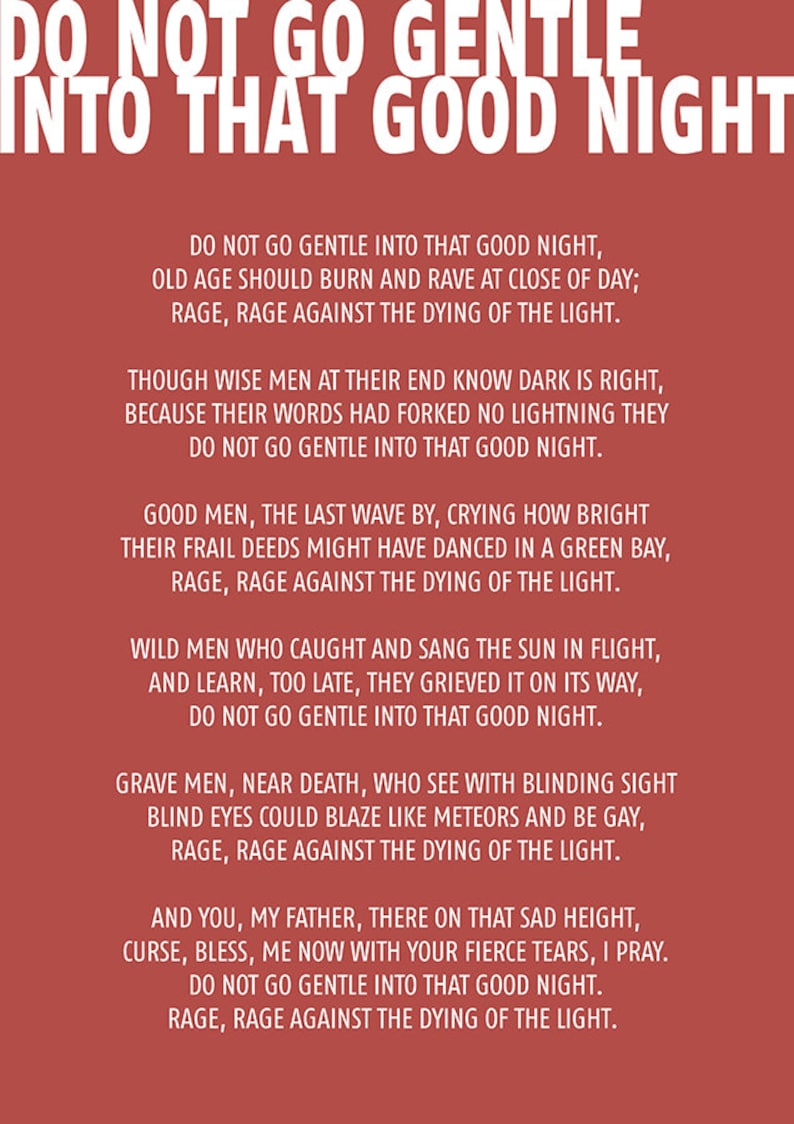
Presented by Abris Silberman through the Friends of the Tate Gallery 1961.Ĭoll: Purchased from the artist by Abris Silberman 1956.Įxh: An Exhibition of Contemporary British Art, E. He is the author of, among others, The Secret Library: A Book-Lovers’ Journey Through Curiosities of History and The Great War, The Waste Land and the Modernist Long Poem.T00439 ‘DO NOT GO GENTLE INTO THAT GOOD NIGHT’ 1956 The author of this article, Dr Oliver Tearle, is a literary critic and lecturer in English at Loughborough University. And perhaps these words of analysis have shed a little light on the workings of the poem, and how it manages to produce such a powerful incantatory effect. You can hear Dylan Thomas reading ‘Do Not Go Gentle Into That Good Night’ here. The rhymes, too, cleverly reflect Thomas’s desire that his father allow a little daylight into his darkest final hours: ‘night’ plays off ‘light’ in terms of rhyme and meaning, but ‘day’, sandwiched between them, semantically opposes ‘night’ (just as Thomas’s father is being asked to oppose its oppressions) before giving way to ‘light’.


Such emphatic words convey the disordered rage which Thomas wants his father to allow to overcome him.

‘Rage, rage’ offers a nice example of the spondee (or heavy iamb, depending on your perspective on spondees), where two syllables are sounded with a similar amount of emphasis. It is that first stanza which shows Dylan Thomas’s way with vowels (and, for that matter, consonants) so wonderfully: ‘age’ and ‘rave’ play against each other with their long ‘a’ sounds, only to coalesce into ‘rage’ in the next line – decidedly apt, since the rage Thomas describes is a result of old age and, in Philip Larkin’s words, ‘the only end of age’. This shifts the poem between the two modes, between asking his father to put up one last fight against the terror of death, and talking of how ‘wise men’ and ‘wild men’ (among others) have provided an example to follow by their defiant actions, using their last breaths to contest their own annihilation.


 0 kommentar(er)
0 kommentar(er)
